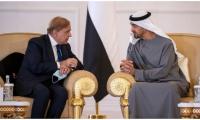Next week, the Nuclear Suppliers Group (NSG) – which regulates civilian nuclear cooperation and tries to prevent nuclear weapons proliferation, – will take up requests for membership by India and Pakistan.
Opinion in the NSG is divided on this issue. Proponents of the nuclear Non-Proliferation Treaty (NPT) argue that new members must adhere to the NSG criteria, including membership of the NPT and/or inclusion in one of the nuclear weapon free zones. Accordingly, they maintain that if non-NPT nuclear weapon states like India, Pakistan or Israel are to be admitted into the NSG then they either have to roll back their nuclear weapons programmes or new rules for their admission have to be agreed upon by the NSG.
On the other hand, certain countries, such as the US and others who are already engaged in nuclear commerce with India, following the waiver given to India by the NSG in 2008, maintain that India should be admitted into the NSG on the basis of “like-mindedness” with NSG objectives. However, ‘like-mindedness’ has never been fully defined and is applied in a discriminatory manner to benefit only India. The outcome of the forthcoming NSG discussion on this issue is not certain at present.
In its efforts to build up India as a counterweight to China, the Bush Administration engineered the waiver for India in 2008, despite domestic and international non-proliferation concerns. These concerns centred on India’s resultant ability to expand its nuclear arsenal by diverting its indigenous fissile materials for weapon production while using imported fissile material for its civilian reactors. There were also concerns, which continue to persist, that India would clandestinely divert imported fissile material from civilian to weapons use as it did from the Canadian supplied civilian nuclear reactor in Tarapur which enabled its first nuclear test in 1974. Despite these concerns, in 2010, the Obama administration went a step further by ensuring Indian membership of the NSG.
The Indian nuclear track record hardly merits such preferential treatment by the US. In 1974, India introduced nuclear weapons into South Asia which forced Pakistan to respond by launching its own nuclear weapons programme. India then refused to sign the NPT and later opposed the Comprehensive Test Ban Treaty (CTBT). It then conducted further nuclear tests in 1998, again forcing Pakistan to make a matching response in order to ensure its deterrence capability.
Moreover, when it received the 2008 nuclear waiver, India was under US sanctions for proliferation activities. Since then India has also been in violation of even the limited measures it undertook to qualify for such a waiver – such as fully separating its civilian and military nuclear reactors; adhering to the limited International Atomic Energy Agency (IAEA) Additional Protocol as well as US laws (Hyde Act) for transparency in use of imported fissile material; agreeing to a moratorium on fissile material production for weapons use; signing and ratifying the CTBT and putting a cap on its nuclear weapons production. Such violations of Indian commitments have been validated by American sources such as the Belfer Center of Harvard University, Arms Control Today (a non-proliferation think tank) and US Senator Ed Markey in a recent Senate hearing.
Even worse are aggressive Indian policies that have destabilised strategic stability in South Asia and threaten to unleash a nuclear and missile arms race in the region. These include: increase in nuclear warheads, a triad of short, medium and long-range missiles that are land, air and sea based, including submarine launched ballistic missiles, development of a Ballistic Missile Defence (BMD) system and even reported production of hydrogen bombs with a destructive capability of several atomic bombs.
Additionally, India has launched a massive conventional military build up worth billions of dollars. Potentially such a large strategic and conventional military arsenal would enable India to implement its aggressive ‘cold-start doctrine’ against Pakistan which envisages a limited conventional attack despite the existence of nuclear deterrence between the two countries.
Supporters of Indian membership into the NSG argue that inclusion in the group is only a matter of ‘prestige’ and will not enhance India’s nuclear weapons capability even though such a claim is clearly a sham in view of the foregoing considerations. Even on the issue of prestige, exclusive membership of the NSG would provide India with the ‘legitimacy’ of a nuclear weapon state and bring it into the nuclear mainstream.
This would not only undermine the existing nuclear non-proliferation regime but would also be discriminatory towards Pakistan. Moreover, since NSG membership is on the basis of consensus, India as a member would in the future consistently oppose Pakistani membership of the group.
Accordingly, simultaneous Indian and Pakistani membership of the NSG is critical for Pakistan. We must, therefore, ensure that the decision by the NSG is taken on the basis of objective and non-discriminatory criterion. In support of its membership Pakistan has already taken multiple steps to qualify such as our robust command and control as well as safety and security measures, apart from other steps consistent with NSG guidelines. The kernel of our argument is that if non-NPT nuclear weapon states are to be admitted into the NSG then it should be done on a non-discriminatory basis.
To be sure some countries will raise Pakistan’s alleged ‘proliferation record’ to oppose Pakistani membership. Pakistan fully cooperated with the IAEA in this context and this is now a closed chapter. Besides, there was no official complicity. On the contrary, in India’s case, Indian official entities were sanctioned by the US for proliferation activities; this has been overlooked.
We also need to think about our reaction if we continue to be subjected to discriminatory treatment regarding NSG membership. We would not only be forced to respond to the Indian military build up in order to ensure credible ‘full spectrum deterrence’ but also question the value of engagement with the US on nuclear issues owing to their blatant disregard for our security concerns.
In this context, the words of US Senator Markey in a US Senate hearing on May 24 are relevant. Markey said that “since 2008 when (we) also gave them an exemption, India has continued to produce fissile material for its nuclear weapons programme virtually un-checked. At that time Pakistan warned us that the deal would increase the chances of the nuclear arms race in South Asia”. NSG members, especially the US, should heed these words.
The writer is a former ambassador and former permanent representative to the UN in Geneva. The views expressed here are his own.







